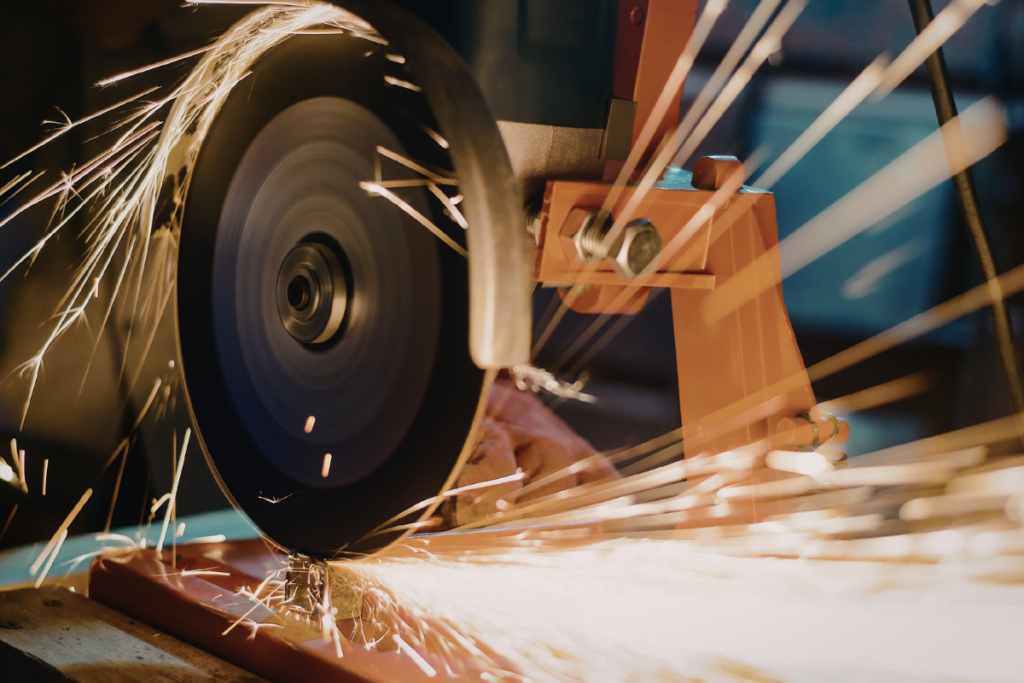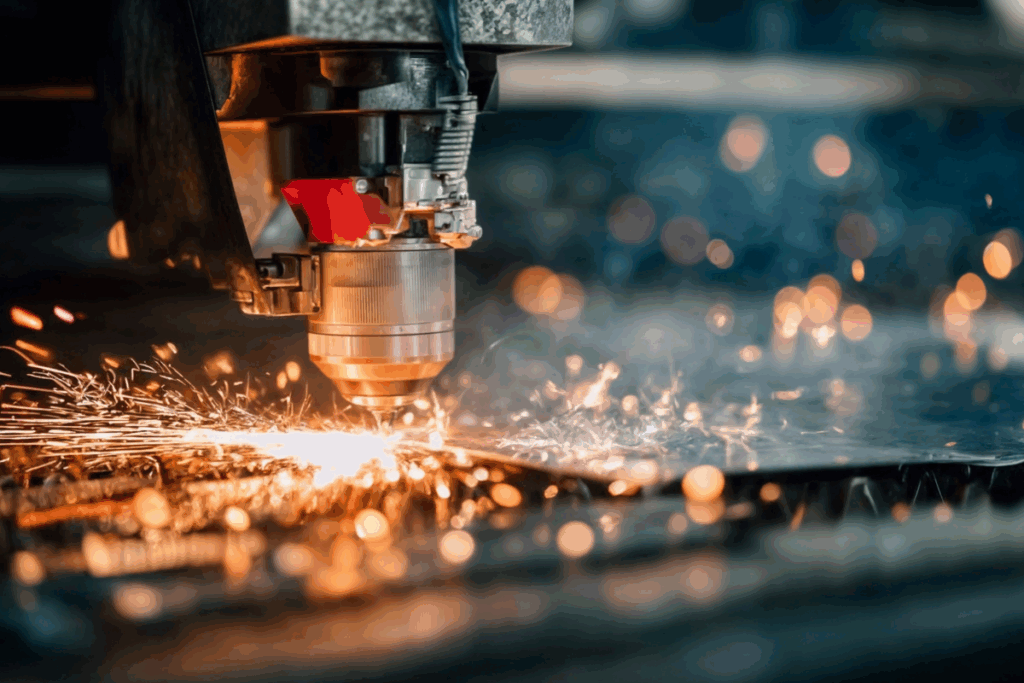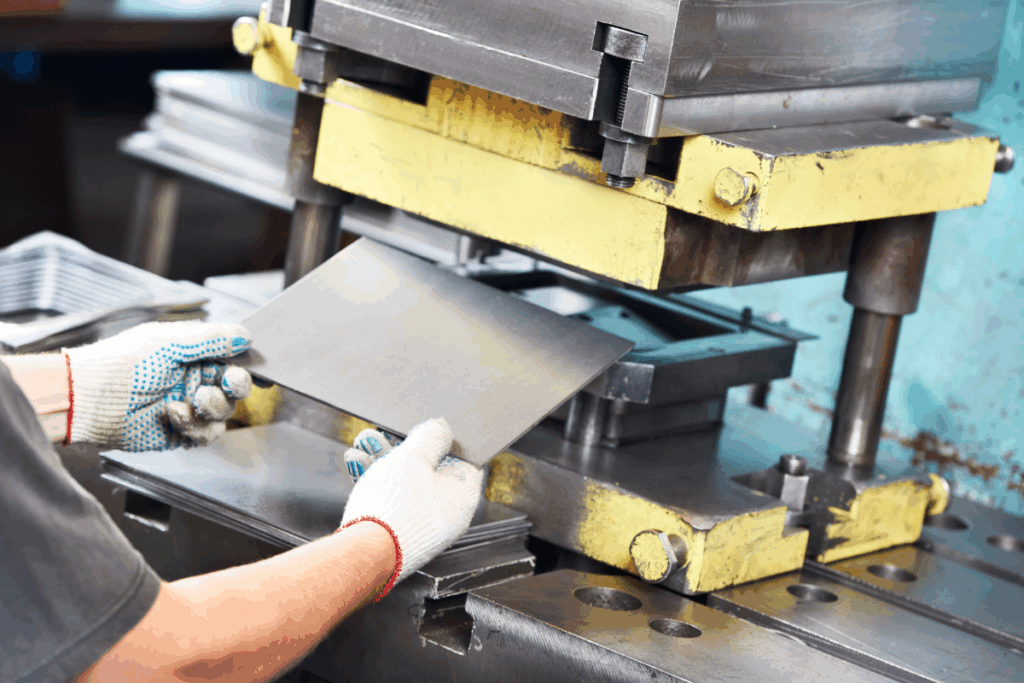When people think of metalworking, many typical images come to mind: men using hammers to strike at steel blocks, iron being smelted into steel, and large trucks transporting raw goods from mines to production facilities.
While these images aren’t wholly inaccurate, they don’t represent the true picture of the modern metalworking facility. Our workforce is more diverse than ever. We use technology to fabricate metal into finished products, and the metal machining industry is very focused on implementing sustainable practices to help minimize the impact of our work on the environment.
The leadership team at AC Fabrication & Assembly Solutions understand that the future of the metalworking industry is “green”, which may sound like an oxymoron because we rely on finite resources to do our work. However, focusing on practices that reduce our carbon footprint and energy consumption delivers a high potential to make high-quality products more cost-effective for our customers.
We believe that adopting the green-friendly practices below will not only help improve the sustainability of the environment but also the long-term viability of our industry.
Adjusting Our Materials Sourcing Strategy
For centuries, our industry has relied on a steady supply of iron and other elements mined from the earth to create products we use every day. However, digging into the ground to remove raw materials and transporting them to production facilities leaves a large carbon footprint. Mining also fuels fears of material scarcity, which can drive prices up.
Fabricators can help mitigate these concerns by recycling, repurposing, refurbishing, and remanufacturing metal products into new products. This approach lengthens the lifespan of the metal, reduces the need to mine for virgin materials, and decreases the amount of waste delivered to overburdened landfill sites.
Metal, especially aluminum, can easily be melted down for reuse in new products, and the process to do so costs less than processing new material. According to the Institute of Scrap Recycling Industries, 60 percent less energy is used to create new steel from recycled iron and steel than from newly mined iron, which results in significant cost savings.
Adopting Technology That Optimizes Material Use
Technology plays a significant role in fabricating products with increased speed, accuracy, and quality. However, it also helps the metalworking industry reduce its carbon footprint by cutting down on material waste.
Precision machine technology, such as computer numerical control (CNC) machining, is controlled by data provided by computer-aided design (CAD) software that details intricate cuts and complex geometries, even for designs with tight tolerances. Since the data controls the cutting, bending, and grinding tools, there is no deviation from the original design throughout the production run. Eliminating potential errors by human fabricators during processing means there is virtually no wasted material.
Many metalworking facilities also utilize additive manufacturing tools, such as 3D printing, to help optimize material use. Additive manufacturing builds the component layer by layer, using only the exact amount of material required, again reducing waste.
Read More: The Role Of Robotics In Welding And Metal Fabrication
Decreasing The Use Of Harsh Chemicals And Pollutants In Fabrication
Many traditional metalworking and finishing materials contain harsh chemicals that have a high potential for polluting the surrounding ecosystem.
In response to environmental concerns, fabricators are increasingly using innovative products such as eco-friendly coatings and bio-based lubricants that will help negate our industry’s impact on local nature. Also, advanced filtration systems and catalytic converters capture harmful pollutants before they can escape to the outdoors.
Improving Energy Conservation
As leaders in metalworking, we can’t ignore the direct link between our high energy use and its environmental impact. The International Energy Agency reports that the iron and steel industry accounts for 8 percent of global energy demand, making it critical for us to take action.
This has led to the adoption of innovations such as electric arc furnaces and energy-efficient machinery that help reduce energy consumption in our daily operations. Additionally, manufacturers are looking to use renewable energy sources such as solar and wind power to help reduce our dependence on traditional energy sources and, as a result, our carbon footprint.
Reusing Water For Non-Human-Contact Applications
Fabricators can also help the environment by reusing as much water as possible where humans do not come into direct contact with it. For example, modern water treatment of wastewater allows for its use in manufacturing processes or cooling of data centers.
Onsite water from boilers can also be repurposed elsewhere in the fabrication facility. This water does not need to be retreated before reuse, making it a cheap and energy-efficient way to support our ecosystem.
Working To Reduce Our Environmental Impact Throughout The Supply Chain
At AC Fabrication & Assembly Solutions, we take sustainability seriously. That’s why we recycle whenever possible, optimize our energy use, and adopt clean production techniques, such as laser cutting and water jetting, to reduce our carbon emissions and overall impact on our ecosystem.
We also take a leadership position in environmental concerns by encouraging other fabrication providers to adopt similar practices. As a company, we can do a lot to help protect our world today. However, as an industry, we can truly make a permanent difference that will benefit humankind for generations.
Read More: Our Solutions
AC Fabrication And Assembly Solutions: Your Only Stop For End-To-End Off-Road Agriculture And Construction Equipment Solutions
AC Fabrication and Assembly Solutions is the only machined and fabricated parts and components supplier in the world that can fulfill your project requirements from initial design to final delivery.
With 300 years of combined experience under our belts, we offer quality, durability, and service you won’t find with any other supplier, delivered by skilled technicians whose primary goal is to create sustainable growth for our customers.
Contact an AC Fabrication and Assembly Solutions expert at 204-952-1900 or by email at sales@acfabandassembly.com for a custom quote on your next project today!



